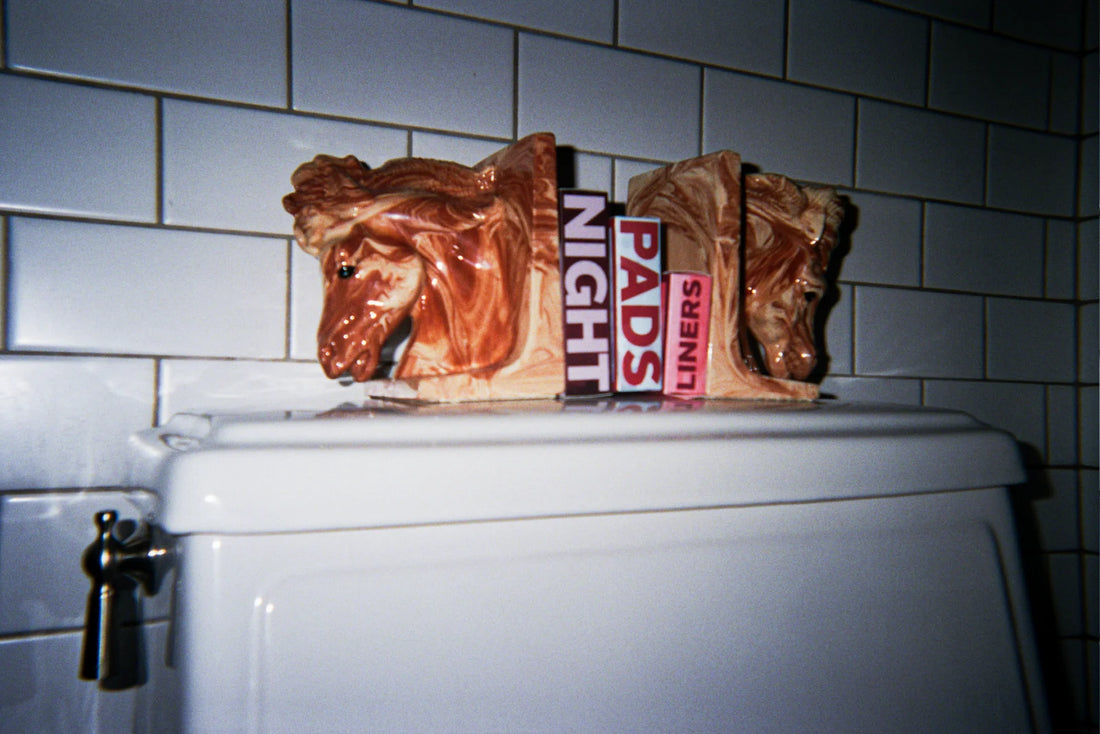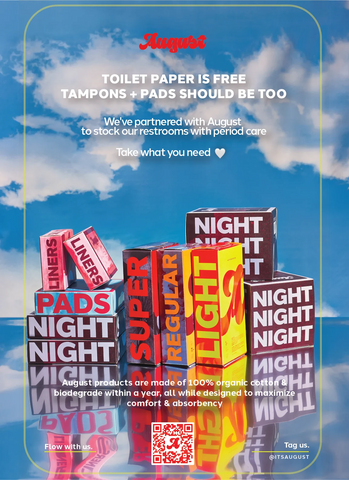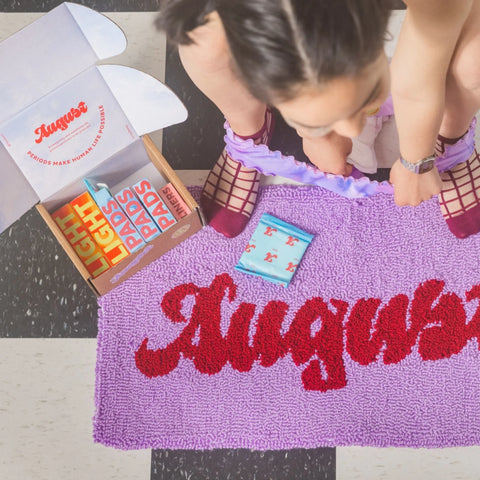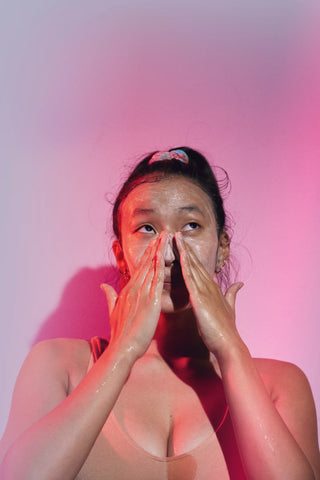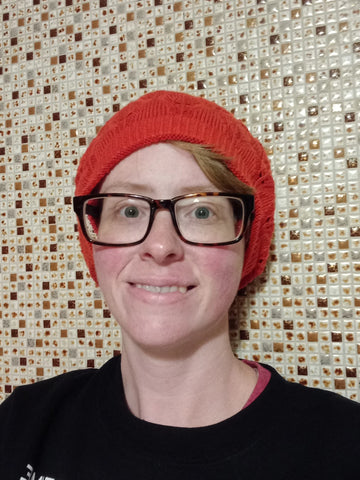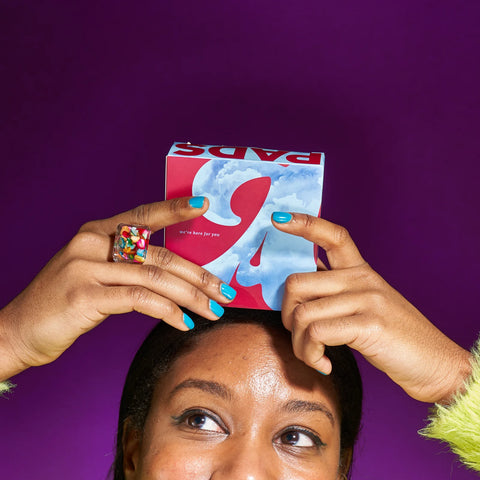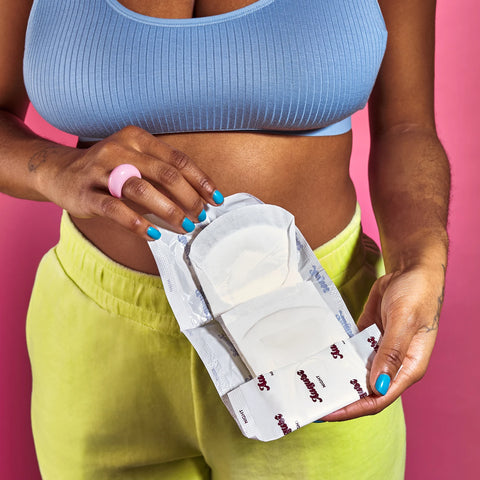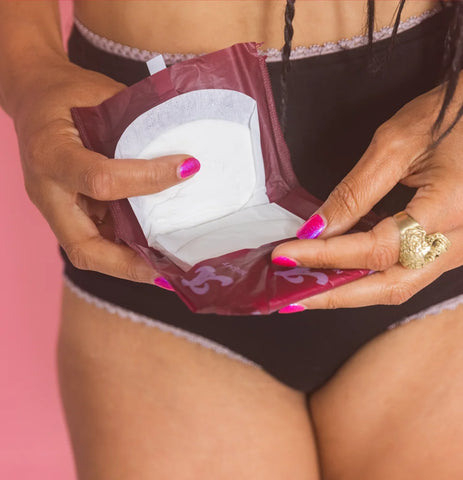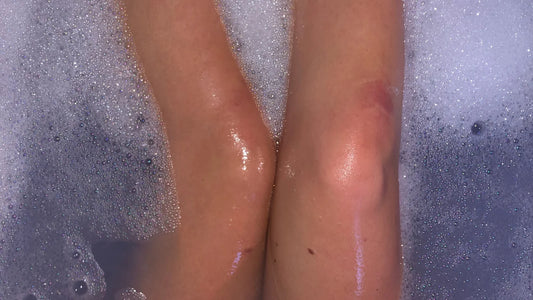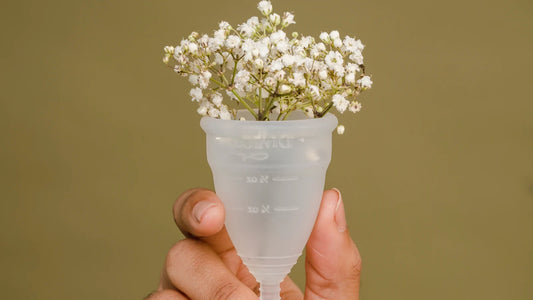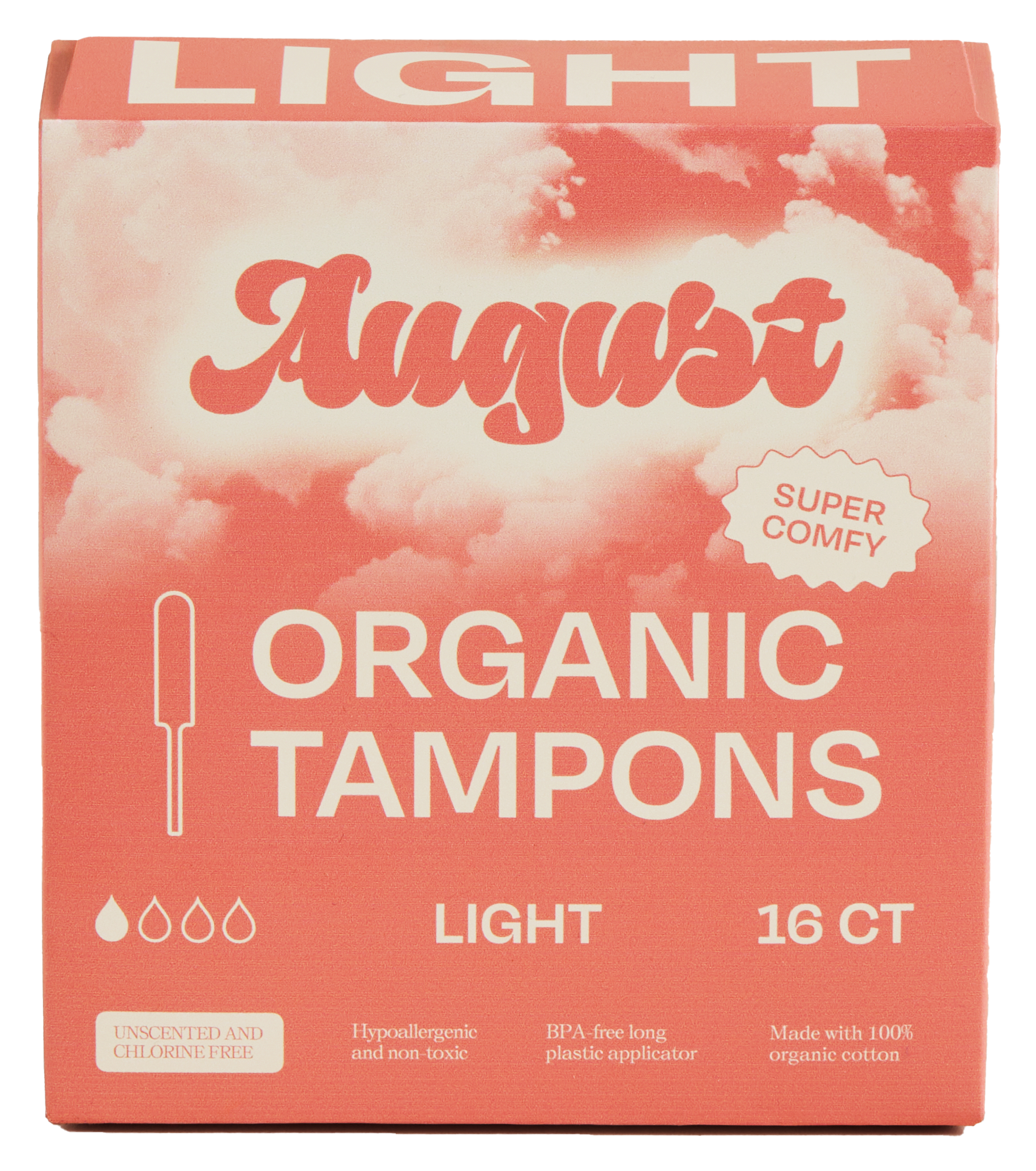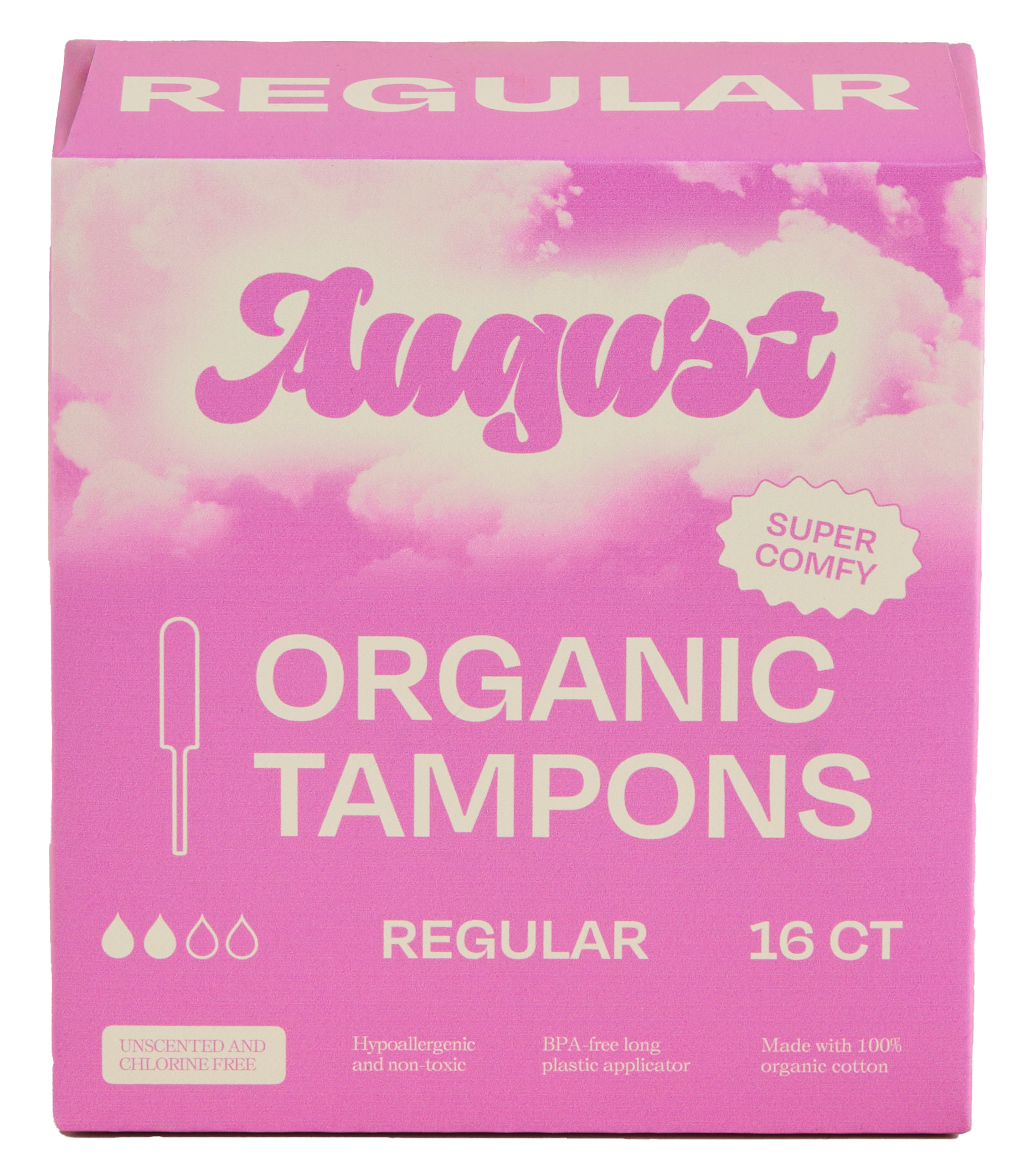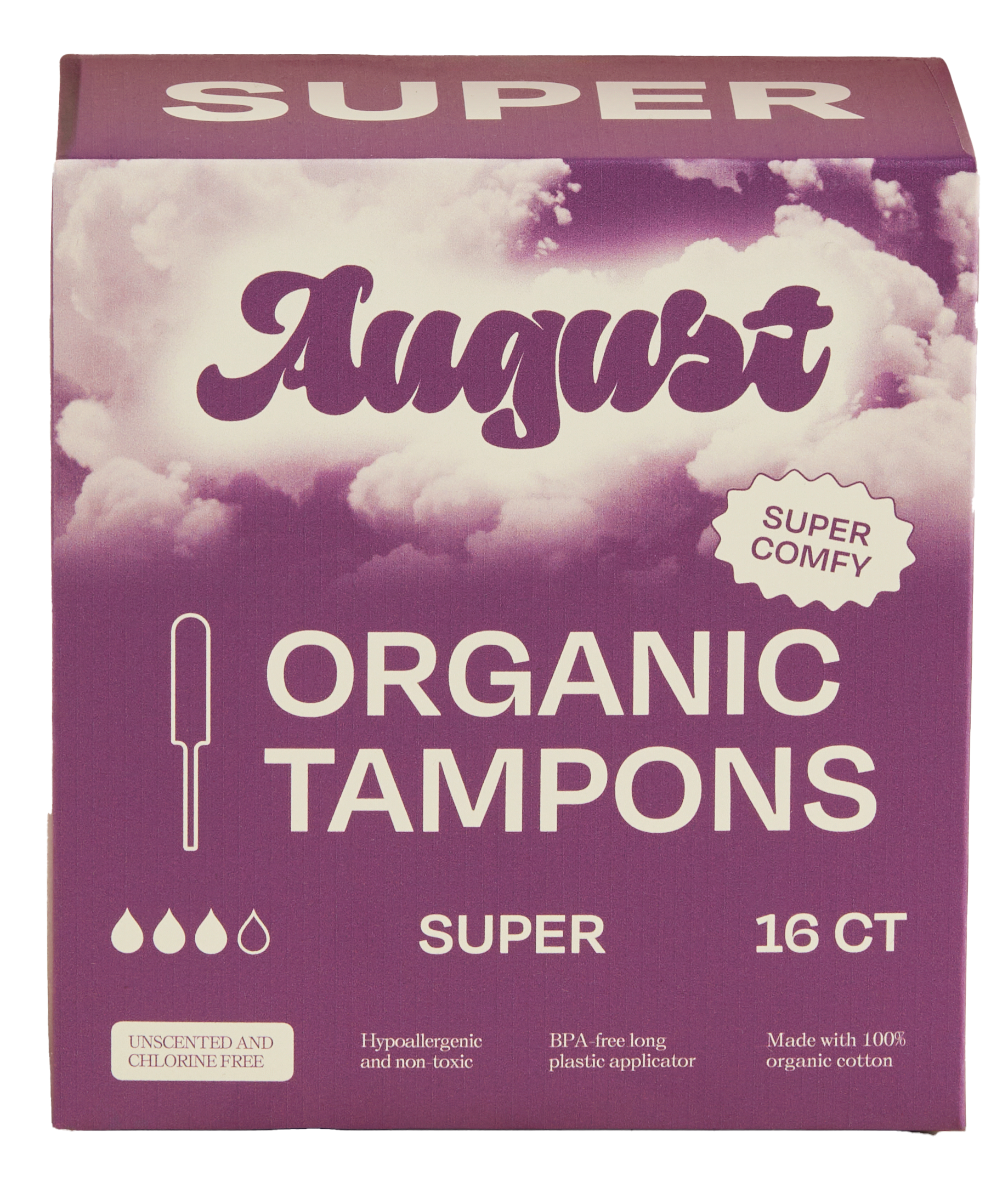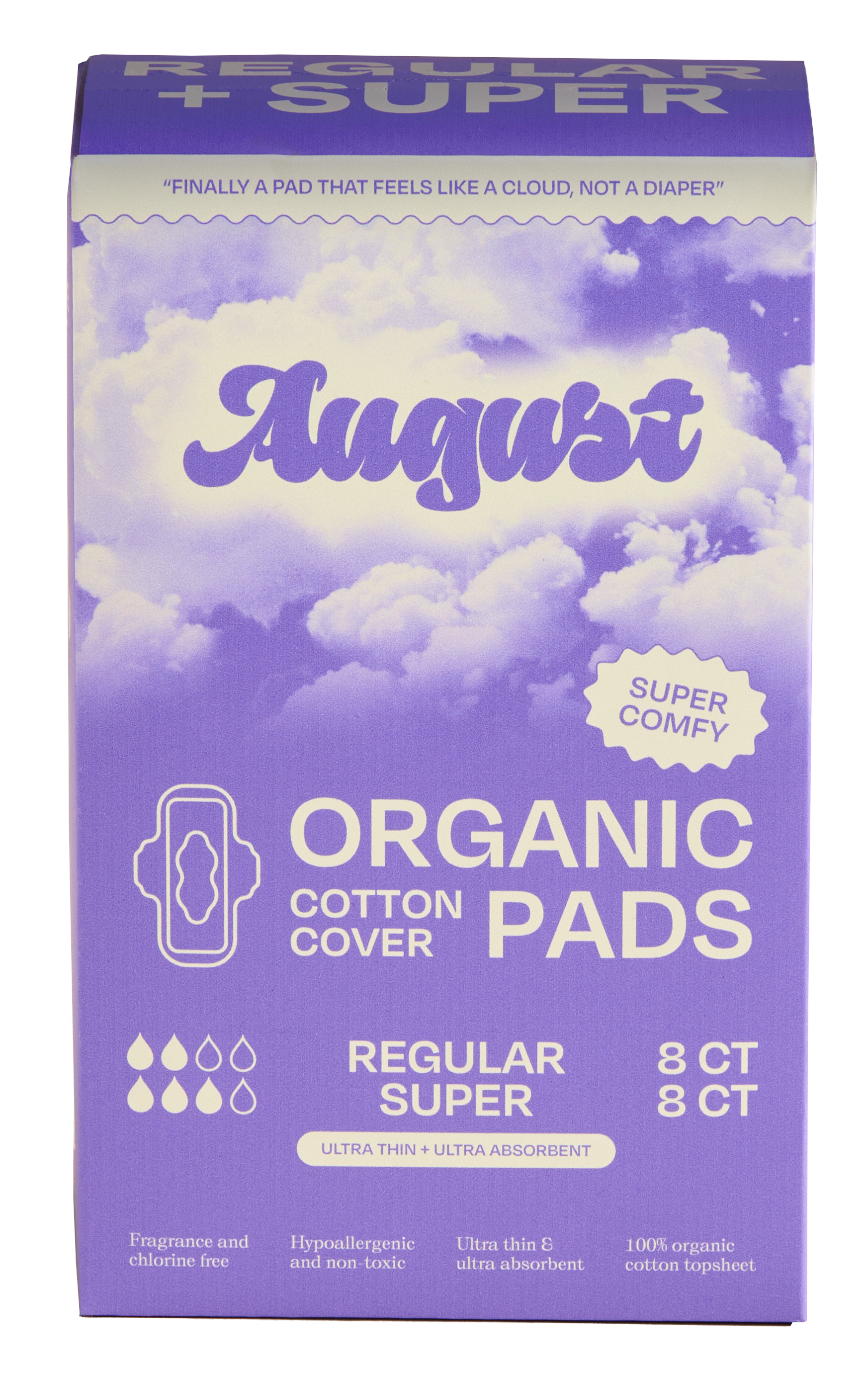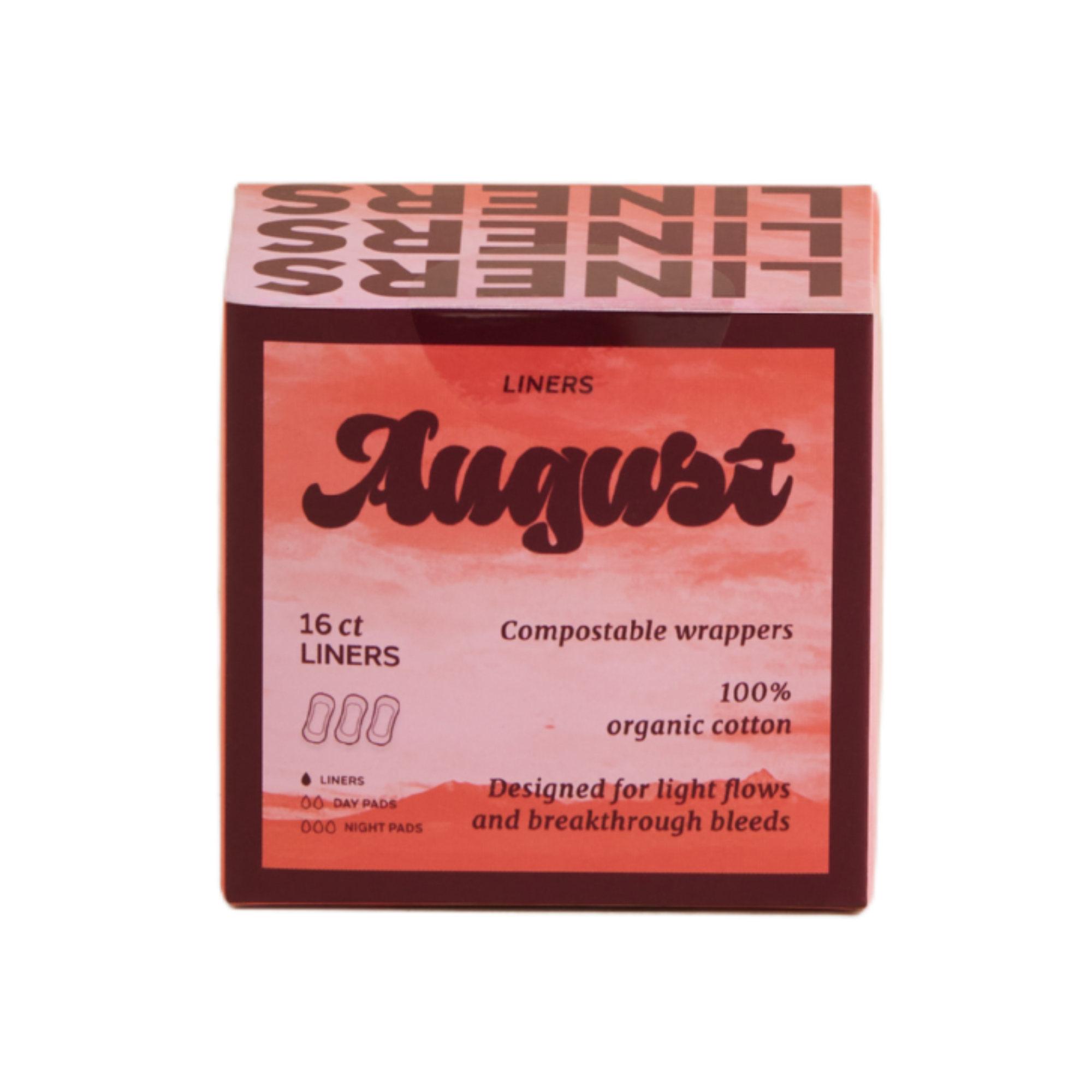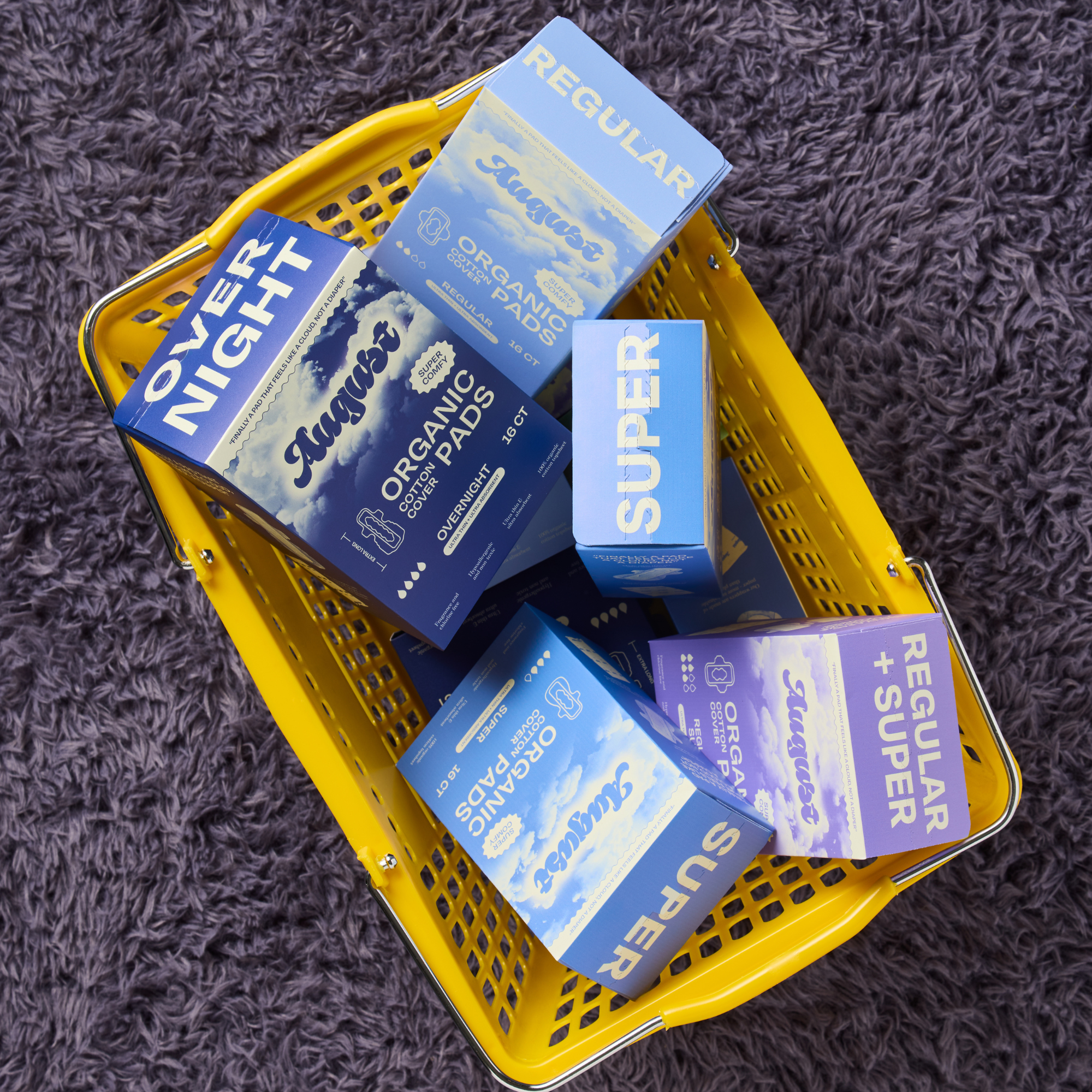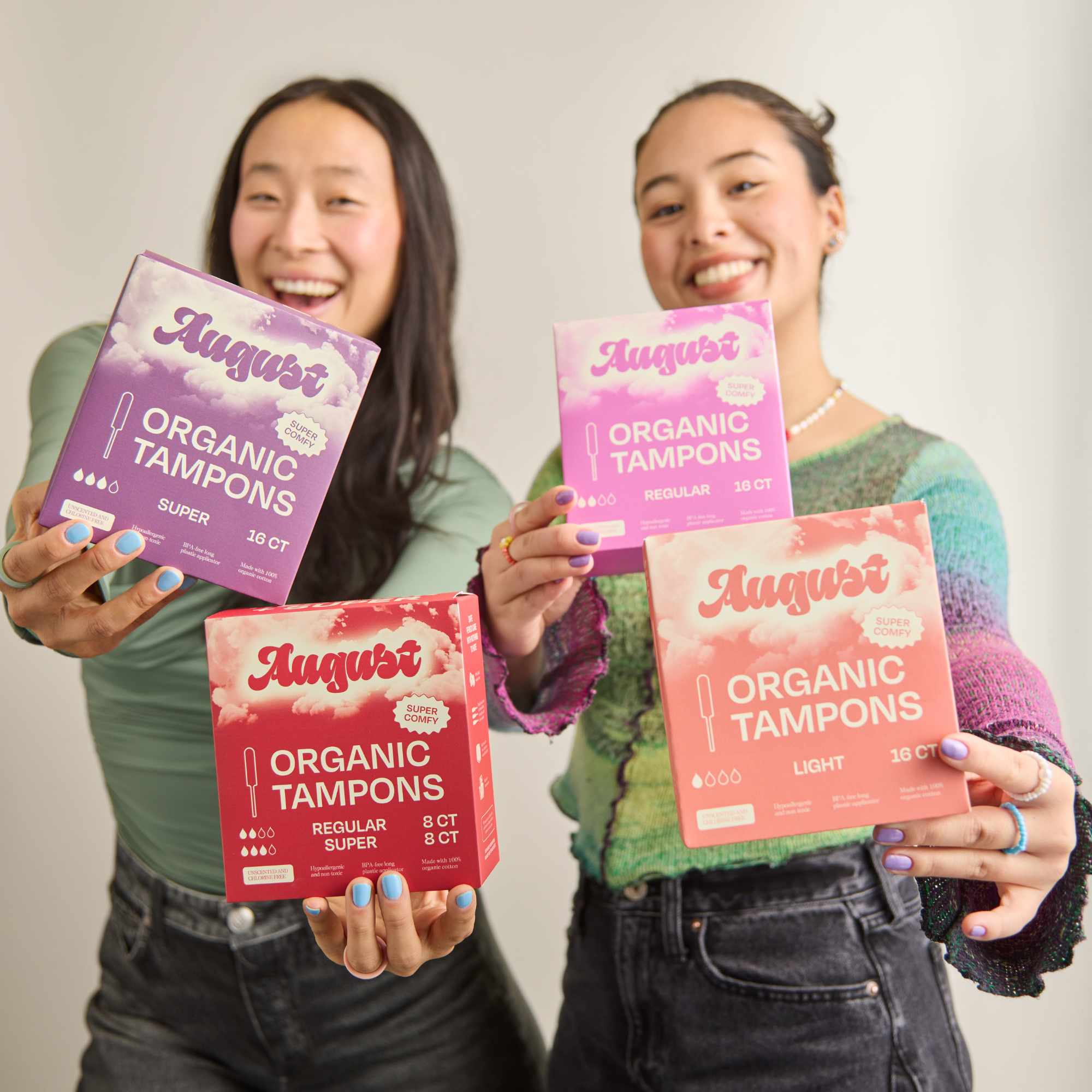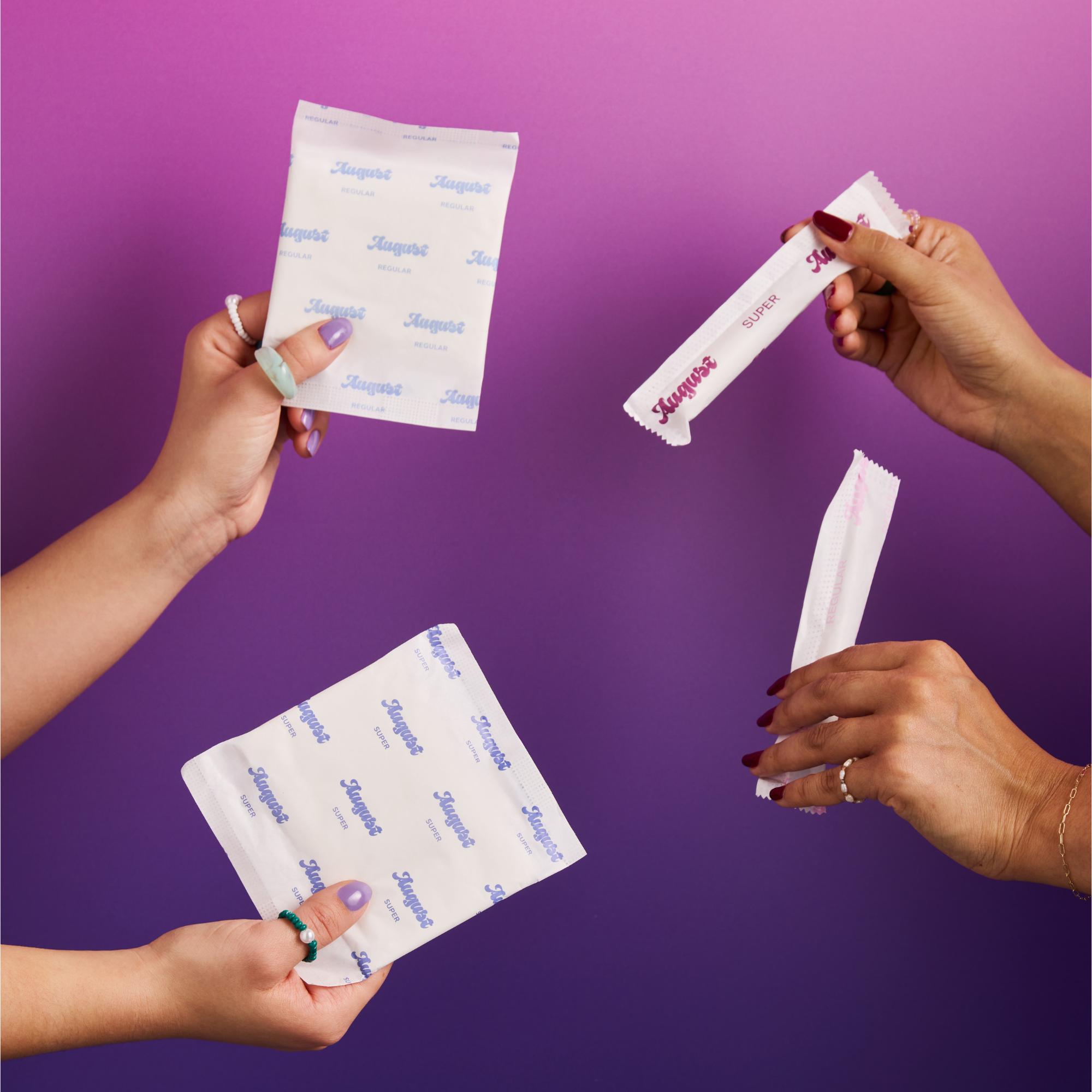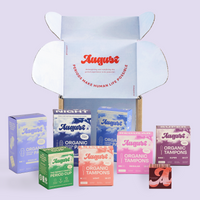Hygiene is a loaded word – especially when it comes to menstrual hygiene.
The term "Feminine Hygiene Product" tends to get a big eye roll from Team August, and a lot of our community.
"Feminine hygiene" was created by advertisers to get around the issue of some products being considered "obscene".
…Of course, a product that isn't designed for cis-men would get that kind of reaction! eye roll
In the late 1800s, New Yorker Anthony Comstock set off for Washington with an anti-obscenity bill which was passed by Congress on March 3, 1873. It would come to be known as ‘the Comstock Act’ which banned and made it illegal to sell or advertise all “obscene” materials aka products that were labelled as contraceptives, or anything that referred directly to sex.
For the birth control industry to continue serving their people – as it rightfully SHOULD – they needed to come up with an alternative description for their products. So, they coined the term “feminine hygiene” using it to advertise their over-the-counter products.
Zonite and Lysol, who made popular household disinfectants that were also advertised as contraceptive douches, started using the term around 1924 as a legal loophole.
Fast-forward nearly 100 years to menstrual activists and gender inclusive advocates discussing the exclusive connotations around ‘Feminine Hygiene’...

As a whole, ‘Feminine Hygiene’ avoids the use of these products’ ACTUAL names because of society’s discomfort with female anatomy and menstruation.
It becomes obvious that ‘feminine’ needs to be removed from our vocabulary surrounding periods in order to be more inclusive of ALL those who get a period!
In addition, the specification of these products being for feminine "hygiene" is an outdated expectation.
It enforces the idea that people with uteruses are expected to maintain a certain level of appearance for society’s standards. Reflect on how many “masculine” products are labeled as being for hygiene…
We’re not saying hygiene shouldn’t be considered for people who menstruate – quite the opposite!
Now that we’ve established a historical understanding on where menstrual hygiene terminology came from, here are some pro-tips about keeping your body clean while on your period!
Wash your hands!

Before changing your tampon or pad, be sure to wash your hands.
Although the vagina is a self-cleaning body part, it is still an intimate area that needs to be protected.
Change your period products regularly!

Change your tampons every 4-8 hours to avoid the risk of TSS!
As for pads, there is less risk of TSS but it is still good hygienic practice to change them out.
- The trick to knowing it’s time?
- Has your product been soaked through?
- Have you come & gone from school or your work day?
- Did you just wrap up a match or some sort of exercise?
- Were you on a long-haul flight?
TSS – a quick overview.

Toxic Shock Syndrome, aka TSS, is a condition caused by bacteria getting into the body and producing bad toxins.
- It’s more rare than people think but still something to be taken seriously.
- TSS is more often caused by wearing a tampon for too long, not with a pad.
- That being said, you should be changing out your period products regularly to avoid leakage and any bacteria developing.
- Generally, if you are experiencing any severe pain or ongoing irregularities with your menstrual cycle, check in with a doctor!
Cleaning your menstrual cups.
Although August doesn’t currently supply menstrual cups…some of you may wonder what the most hygienic storage and cleaning methods are for menstrual cups?
It is recommended that you boil your cup after each cycle (or once a month) in hot water and store it in a cool, dry, container.
Menstrual hygiene includes understanding of accessibility to products, sanitation facilities AND education.
Accessibility As we push for a more sustainable world, it’s important to remember that not everyone has the same access (economically or even physically) to certain period products or services.
Period products should be free in public institutions (hospitals, clinics, schools, universities). In addition,
It’s important to provide many varieties of period products so that every need is met (i.e. physical mobility, sensory demands, and flow levels).
Products Education about products is essential to good hygiene.
Each unique menstruating person needs to know what options are out there that will best match their flow.
August continues to empower our community to feel a sense of agency about which period products they choose to use.
While doing so, we are working to curate the best collection of high quality, sustainable period care that we can, based on the feedback we hear from our community.
Facilities Menstrual hygiene goes beyond the period product.
It is a human right that one has access to clean water and sanitation, which is essential to every person, but especially a menstruator's life.
When changing period products, we require water to wash either our reusable products and our hands, we require garbage bins if we opt for disposable period products. And these facilities that we use need to be clean and adequate.
Education A lack of access to menstrual hygiene products directly results in a lower literacy rate and school attendance for menstruators.
This is due to fear of stigmatization along with limited supply to menstrual hygiene supplies, water, disposal facilities and private, clean bathrooms.
When menstruators aren’t able to access period products during their periods, this can affect their ability to focus, or even to attend classes. This can prevent them from learning at the same level as their non-menstruating counterparts.
In many cases, a lack of access to menstrual hygiene products is the leading cause of absenteeism.
Continue the conversation about menstrual health and hygiene with us!

Join the #InnerCycle Community to connect with fellow menstruators around the world (60+ different countries!) about how they manage their period!
Looking for your new favorite period product? Try August’s sustainable, organic, toxin-free period care!
